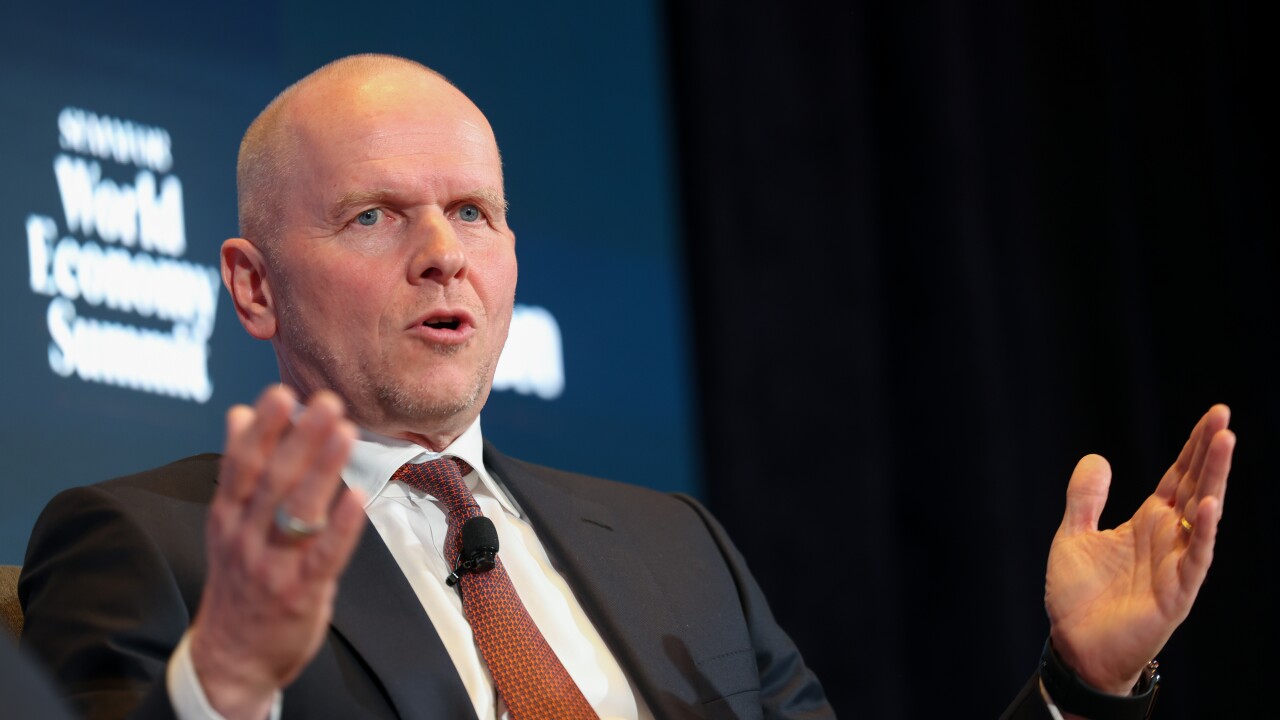-
John Kanas, BankUnited's CEO, said settling with his former employer was a better option than enduring a lengthy legal battle and possible trial.
June 19 -
John Kanas released a statement on Tuesday re-asserting that BankUnited Inc.'s planned acquisition of Herald National Bank jibes with his noncompete provisions with Capital One Bank.
July 19
So why did the heavyweight want so badly to stomp the tiny challenger?
That question lingered a day after Capital One Financial (COF), one of the largest U.S. banking companies,
However, try to imagine the competitive landscape a few years from now and you will better understand the threat that BankUnited poses, experts said Wednesday. Hard feelings and legal precedent aside, Capital One declared war to protect its standing in the Northeast — particularly in New York.
"Over time, BankUnited wants to grow their organization, so give it two or three years and they will be a much bigger player in New York," says Gerard Cassidy, an analyst at RBC Capital Markets. "They will probably give Capital One a run for their money."
The Northeast is a coveted market that fared better in the economic downturn than other regions, and the private-equity-backed BankUnited could make another deal or two and prove formidable. Plus, the two BankUnited executives who settled with Capital One on Tuesday, John Kanas and John Bohlsen, carry clout in the area.
"Kanas is a master at" growing banks "so from a business standpoint, one cannot blame Capital One for attempting to limit competition," says Robert Voth, a managing partner at the Cleveland office of CTPartners, a bank management consultant.
Kanas, BankUnited's CEO, and Bohlsen, its chief lending officer, joined Capital One after the company acquired their New York bank, North Fork Bancorp, in 2006. Both executives left Capital One after a year and signed noncompete agreements which were set to expire after Aug. 6 of this year. Kanas formed BankUnited in 2009 by acquiring Florida's largest failed thrift, and the company
Each man agreed to pay $10 million out of his own pocket and is barred from involvement with the Herald National unit until Jan. 31. BankUnited also may not solicit any customers or employees of Capital One in New York, Connecticut or New Jersey until Jan. 31. That ban includes opening branches or making acquisitions in the area.
That Capital One would put up such a fight signals that its executives will go to great lengths to protect their expansion plans, observers say.
"Capital One has been very aggressive and successful in their banking growth so it's not surprising that they would wish to protect their turf, especially in light of their recent efforts to expand in those specific [Northeast] markets," Voth says. "One can also not blame Kanas and Bohlsen for not exploring all avenues of growth."
Capital One in McLean, Va., spent billions of dollars to buy
"It's not what Herald National is today but the launching pad of what Herald could and will be tomorrow that is what more than likely concerns Capital One," Voth says.
BankUnited (BKU) had planned to open several branches in New York starting this fall through the acquisition of Herald National. But the legal settlement will delay the branch openings until February.
The delay was preferable to a lengthy legal battle, Kanas said Tuesday.
"There was a substantial risk to BankUnited had the noncompete lawsuit gotten stretched out" by going to trial, Kanas said in an interview late Tuesday.
"Our branches wouldn't be ready until late fall anyway so I don't view this as a long extension," he said. "I believe settling was in the best interest of BankUnited to get this behind us."
Capital One said in its release that it, too, was pleased with the settlement, which "affirmed the validity of the noncompetition agreements that were negotiated in good faith."
Some observers agreed with Kanas that the settlement will have minimal impact on the company’s overall growth strategy. It could even have just bought the company more time.
"Over the long run, I think it will not be a material impact in getting the branches up and running about six months after they originally hoped," says Cassidy, who covers BankUnited. "In fact, it will give BankUnited more time to prepare and to have a more effective branch opening."
BankUnited will be able to announce any acquisition of a bank, customer or employee in the restricted markets after Aug. 6 so long as none come from Capital One. That final limit expires Feb. 1, 2013.
"We're going to work very hard" after the settlement period ends, Kanas said. "We continue to look for M&A opportunities in the Southeast and we continue to think about what opportunities might arise in the Northeast once we get there."




